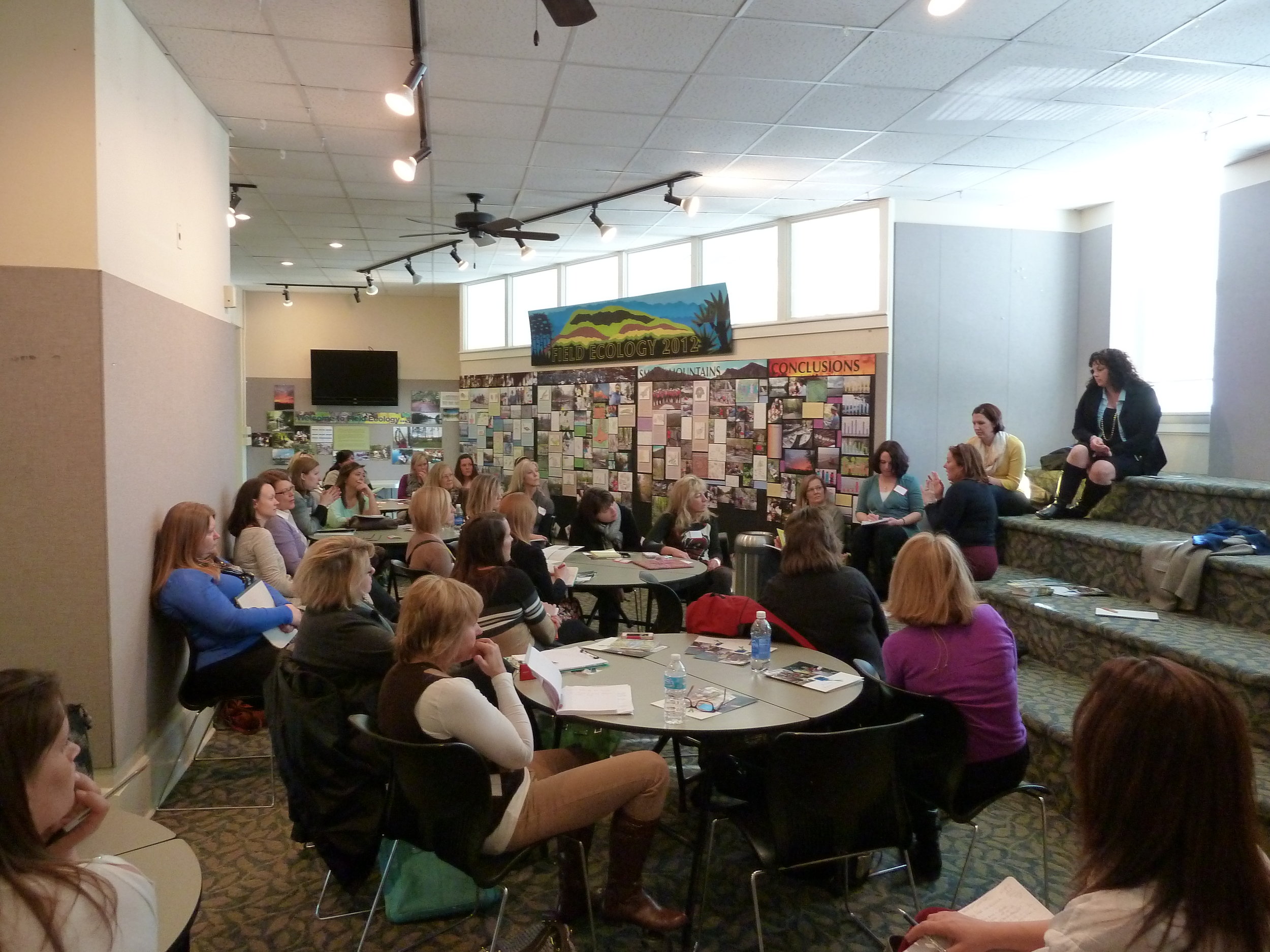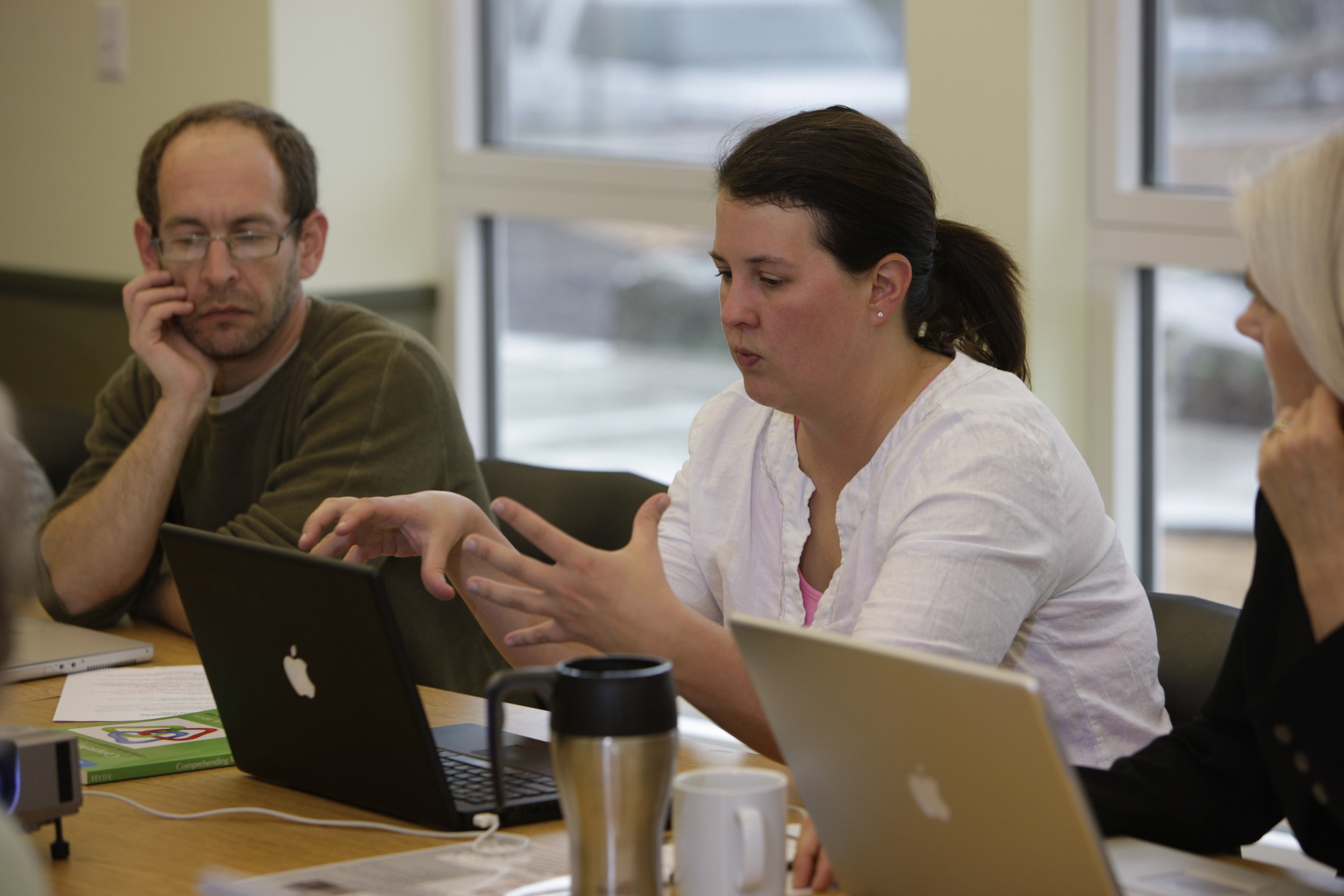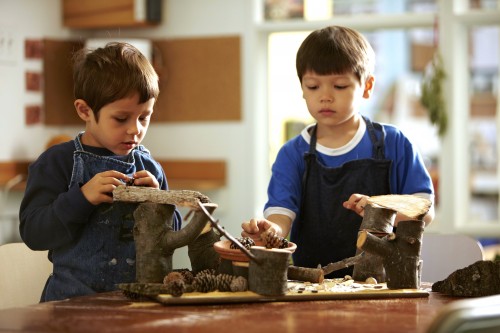 Last week I wrote about the exciting professional development and school design sessions I’ve had with Oregon Episcopal School (OES). Two of the most generative moments of the OES faculty’s brainstorming and design thinking came from the sudden and creative invention of metaphors: OES is like a riverboat...and OES is like a jazz band. With each metaphor, individual and collective imaginations clicked ON.
For instance, with the jazz band metaphor, the idea developed that highly skilled teachers engaged in inquiry based learning are like jazz musicians. Those teachers understand theory and practice in both pedagogy (music theory) and different subjects/disciplines (different instruments). They harness their understanding of learning patterns to the vehicle of inquiry (innovation and invention). They are at once: clear about the overall intentions of the particular investigation (the jazz theme), attuned to each individual student’s response (each member of the jazz ensemble), and skilled at leading all students to learn and to make new connections. As the investigations develop and conclude, great teachers inspire and guide a rich and meaningful expressions of individual and collective learning (a jazz composition).
Last week I wrote about the exciting professional development and school design sessions I’ve had with Oregon Episcopal School (OES). Two of the most generative moments of the OES faculty’s brainstorming and design thinking came from the sudden and creative invention of metaphors: OES is like a riverboat...and OES is like a jazz band. With each metaphor, individual and collective imaginations clicked ON.
For instance, with the jazz band metaphor, the idea developed that highly skilled teachers engaged in inquiry based learning are like jazz musicians. Those teachers understand theory and practice in both pedagogy (music theory) and different subjects/disciplines (different instruments). They harness their understanding of learning patterns to the vehicle of inquiry (innovation and invention). They are at once: clear about the overall intentions of the particular investigation (the jazz theme), attuned to each individual student’s response (each member of the jazz ensemble), and skilled at leading all students to learn and to make new connections. As the investigations develop and conclude, great teachers inspire and guide a rich and meaningful expressions of individual and collective learning (a jazz composition).
The jazz band metaphor resonated for me again on February 15 at The College School in Webster Groves (TCS) and The St. Michael School of Clayton (SMS) where Cadwell Collaborative hosted 32 teachers from two different Chicago schools, Union Church of Hinsdale Early Childhood Center and the Winnetka Community Nursery School.
To watch and listen to the teachers from TCS and SMS is very much like listening to a really fine jazz ensemble. The language they use to describe what they are doing could be likened to a jazz players talking about playing jazz. Phrases and words like: listen carefully to all the children to know where to go and what to support; use what you know and then go somewhere new; practice, practice, practice; be grounded and fly; be serious and have fun; wonder and experiment.
In the afternoon workshop the teachers' challenge was to outline a possible investigation using a “mapping” format borrowed from the current practice at SMS (a framework that SMS has developed over a five year period, one that derives from Grant Wiggins' work). Though the task was concrete, the process was organic. The teachers met in groups of four. In three different 20 minute periods, each person met with three different trios. So, with 32 teachers, there were 8 quartets playing at one time. And over the three sessions each player got to play with 9 different partners. The central objective was the same yet the ideas were many and diverse. One teacher reflected, The mapping workshop helped me assemble and consider exciting ideas from other teachers. Another said: It was great to hear other perspectives. I’m leaving with so many inspiring and practical ideas!
To collaborate and compose in this way as educators can open new doors and develop new skills, among the 21st century skills that we wish to instill also in our students.



